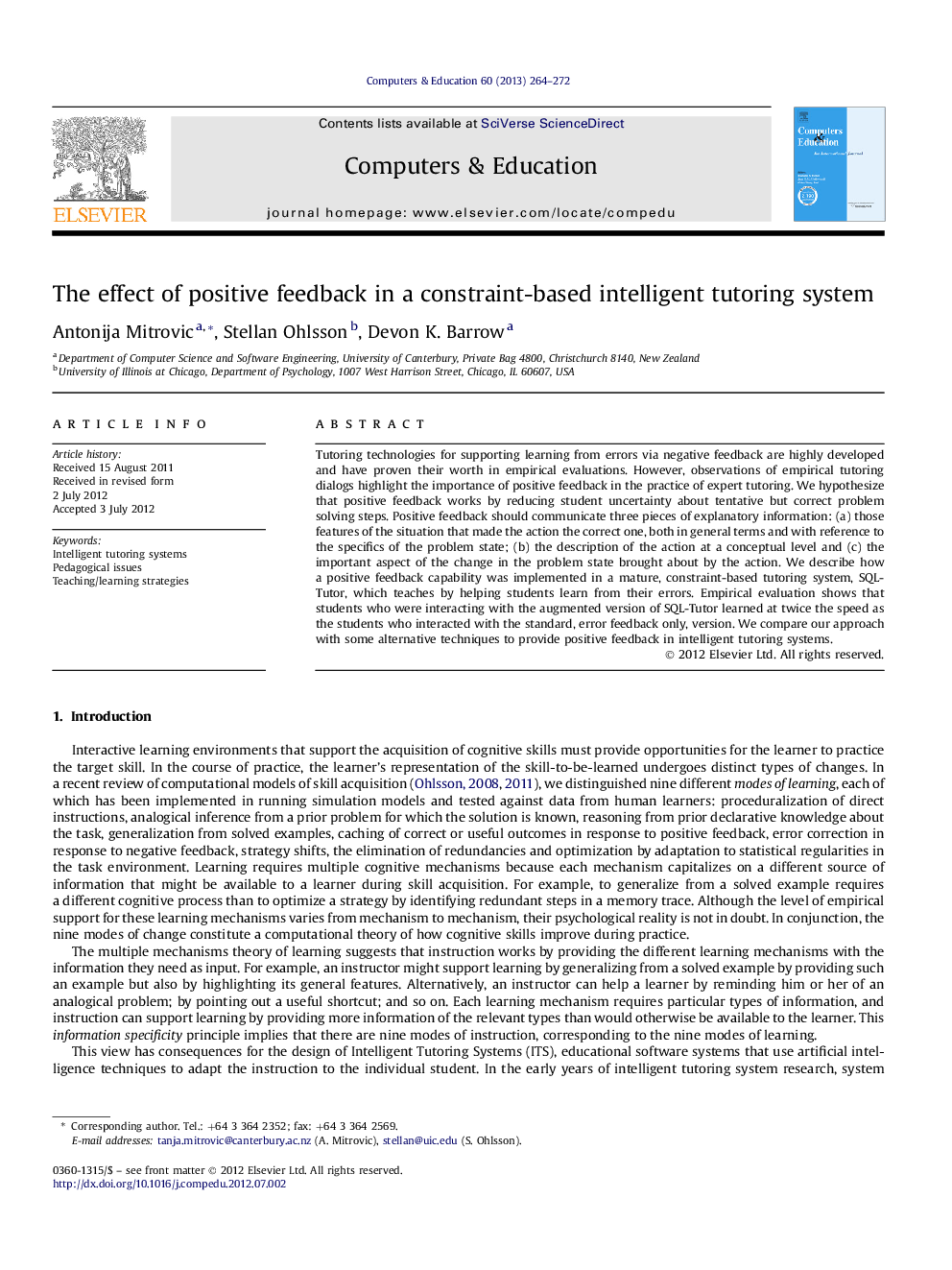| کد مقاله | کد نشریه | سال انتشار | مقاله انگلیسی | نسخه تمام متن |
|---|---|---|---|---|
| 348567 | 618193 | 2013 | 9 صفحه PDF | دانلود رایگان |

Tutoring technologies for supporting learning from errors via negative feedback are highly developed and have proven their worth in empirical evaluations. However, observations of empirical tutoring dialogs highlight the importance of positive feedback in the practice of expert tutoring. We hypothesize that positive feedback works by reducing student uncertainty about tentative but correct problem solving steps. Positive feedback should communicate three pieces of explanatory information: (a) those features of the situation that made the action the correct one, both in general terms and with reference to the specifics of the problem state; (b) the description of the action at a conceptual level and (c) the important aspect of the change in the problem state brought about by the action. We describe how a positive feedback capability was implemented in a mature, constraint-based tutoring system, SQL-Tutor, which teaches by helping students learn from their errors. Empirical evaluation shows that students who were interacting with the augmented version of SQL-Tutor learned at twice the speed as the students who interacted with the standard, error feedback only, version. We compare our approach with some alternative techniques to provide positive feedback in intelligent tutoring systems.
► We discuss the role of positive feedback in intelligent tutoring systems.
► We present an implementation of positive feedback in a constraint-based tutor.
► We compared the system with negative feedback to one with both types of feedback.
► The results show that providing positive feedback cuts the time to mastery in half.
Journal: Computers & Education - Volume 60, Issue 1, January 2013, Pages 264–272